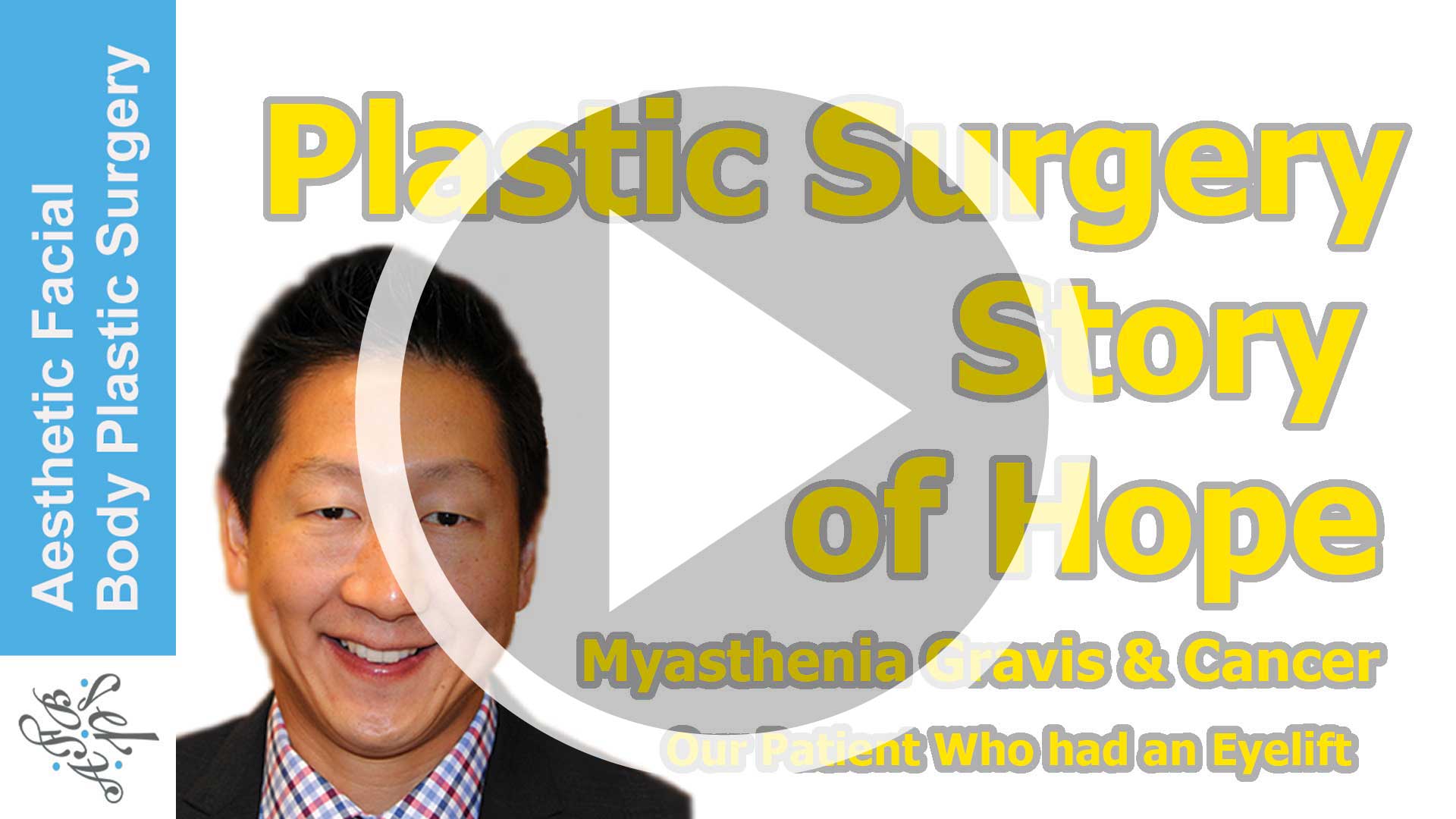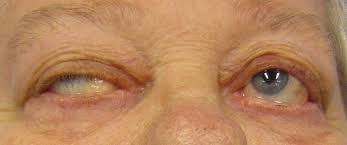
Debbie is a 40's something Caucasian Female who was a happily married mother of 2 who began having problems opening up her eyes. It was frightening and it happened like all of a sudden. Naturally, when things like this happen, you start to think of all sorts of things. Is it life threatening? Is it progressive and that I might end up like Stephen Hawkings and other scary thoughts? After seeing many doctors, they finally determined that she had Myasthenia Gravis which is a long term Neuromuscular disease that leads to varying degrees of skeletal muscle weakness. The most common affected muscles are the eyes, face and swallowing muscles. It can result in double vision, drooping eyelids and issues with walking, swallowing and talking. Onset can be sudden. But fortunately, it wasn't life threatening and it could be treated.

Although, it is not life threatening. It is definitely an issue for her appearance. Her eyes are really droopy and she can barely open them. It doesn't look normal and people can immediately notice. This is definitely going to be a change for her life. But she remains so positive and the nicest person you'll ever meet. She starts to take steroids and this becomes a long term thing. When I meet her to discuss opening up her eyelids, I immediately have a great feeling about her and I like her instantly. She is that kind of a person. She had a surgery about 10 years ago, but it didn't work. For our first surgery, we really go after her droopy eyelids and she loves them. But I'm worried that she can't close her eyes very well and that she may have problems. We have another eye specialist follow her and we are all worried. But she isn't worried at all and she makes it through with no problems. She was confident that this was no big deal all along.
With our first Upper Eyelift Surgery, we wanted to be conservative and just elevate her eyelids and recreate her crease. But we didn't take too much skin to be safe. So she comes back later and tells us that she is ready for more skin to be taken. But, then I don't hear from her for several months. We she comes back she tells me that during that time she found out she had an advanced stage of ovarian cancer. It kind of hit me a little hard. After all, my mother died of ovarian cancer. Despite this news, however, she is so upbeat. She says she has the cancer beat and its gone. You can just feel her positive energy and confidence.
The reason I'm writing this story is that most of the time you are very likely to be able to think of someone that has it way worse than you. Despite having this autoimmune disease and then finding out you have cancer, this wonderful person remains so positive - its amazing. It was so significant that I had to write this story about her. I read something really interesting the other day about how depression could be a form of selfishness (Happiness by Mathieu Ricard, Emotional Intelligence by Daniel Goleman, The Seven Spiritual Laws of Success: A Practical Guide to the Fulfillment of Your Dreams by Deepak Chopra). Meaning that, "it is all about my feelings, my sadness". Whenever I get down, I think to myself, "there are so many people out there with way more problems that I should be ashamed to think that I'm doing so bad". Out in the world, you have people who are quadraplegic, people who have the worse cancer, people being tortured, etc. It's a different way of thinking. But I think it could help a lot of people, like it did for me.
So this story is to encourage you to have positive thoughts. Research has shown that positive thoughts and attitudes prompt changes in your body that strengthen your immune system, boost positive emotions, decrease pain and chronic disease, and provide stress relief. One study found that happiness, optimism, life satisfaction, and other positive psychological attributes are associated with a lower risk of heart disease. Another study, which looked at 607 patients in a hospital in Denmark, found that patients whose moods were overall more positive were 58 percent more likely to live at least another five years. It has even been scientifically shown that happiness can alter your genes! A team of researchers at UCLA showed that people with a deep sense of happiness and well-being had lower levels of inflammatory gene expression and stronger antiviral and antibody responses.
Here are a few links to learn more about Positive Attitudes and how it impacts your Health:smiley-face.jpg

